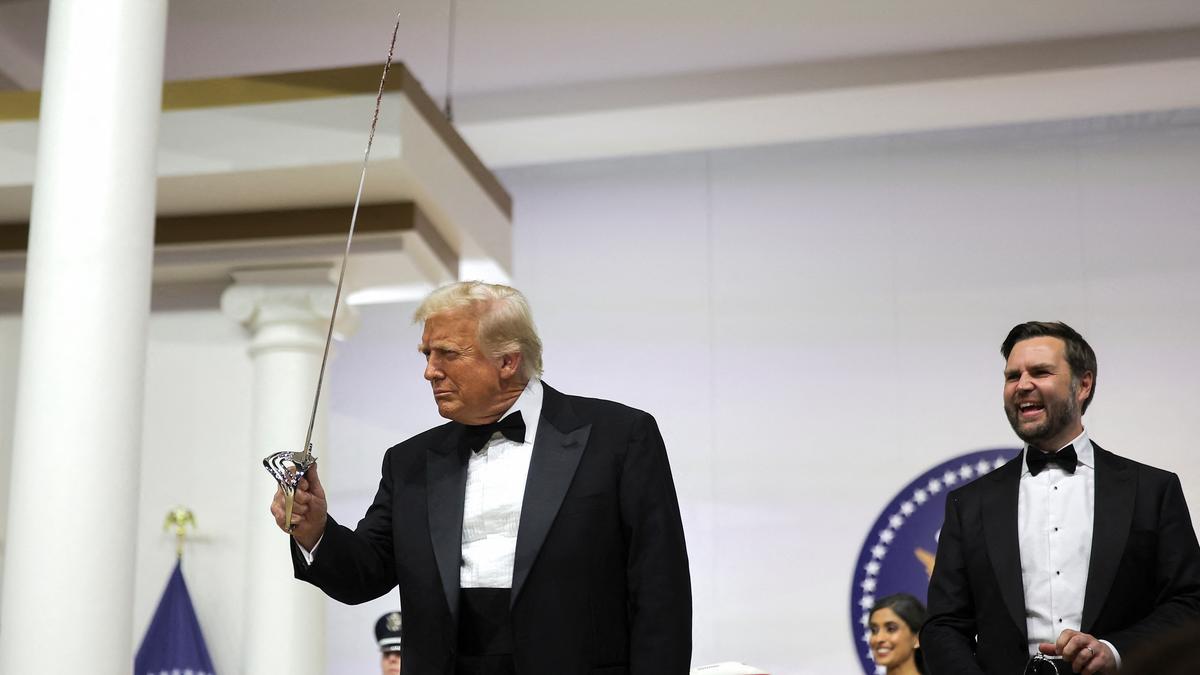Trump's Return: A Looming Threat to International Law?
Prepare yourselves, for the return of the disruptor! Donald Trump's second term as president casts a long shadow over international law, threatening to unravel years of established norms and agreements. Get ready to delve into the turbulent waters of global politics and witness the potential clash between Trump's "America First" agenda and the international legal order.
The Trumpian Era: A Sovereigntist Approach to International Relations
Trump's presidency, marked by skepticism towards multilateralism and an embrace of bilateralism, has already left its imprint on the global stage. Remember the shockwaves of the Paris Agreement withdrawal? Or the dismantling of international trade agreements? These moves epitomize a "sovereigntist view" of international law—a perspective prioritizing national interests above global cooperation and treaties, which are perceived as limitations on national sovereignty.
Unilateralism Unleashed: Tariffs, Trade Wars, and the WTO
Trump's fondness for tariffs and protectionist measures has significantly impacted international trade. His administration's actions against allied countries created trade conflicts, challenging established trade agreements and mechanisms. Trump's approach threatened the WTO, undermining its dispute resolution system and demonstrating a willingness to challenge global trade frameworks to advance U.S. interests. Remember the impact on global markets and the ripple effect through supply chains – these moves signaled a move away from international consensus. Such tactics are common among emerging revisionist powers, but alarming for an established superpower like the United States.
America's Walk Away from Global Agreements: A Legacy of Unilateral Action
Beyond tariffs, Trump's first term witnessed the United States' withdrawal from crucial international agreements. The withdrawal from the Paris Agreement on Climate Change, a key nuclear treaty with Russia, and the Iran nuclear deal (JCPOA) signaled a broader pattern of disregard for multinational cooperation and the pursuit of unilateral action. This recalibration of US foreign policy sent shockwaves across the world, leading to uncertainties in global diplomatic efforts to achieve mutually agreed-upon goals.
The Looming Threat of Trump's Second Term
The specter of Trump's second term evokes concerns about a renewed assault on international institutions and agreements. His past actions, coupled with his pronouncements on pursuing unilateral policies, suggest a continued emphasis on "America First." This raises serious questions regarding the future stability and effectiveness of many international frameworks and the multilateral systems they have been upholding.
Emboldening Revisionist Powers: Annexation and Intervention
Trump’s proposed annexation of Greenland and potential annexation of the Panama Canal demonstrate a flagrant disregard for international norms around national sovereignty and self-determination. Moreover, including Canada as a 51st state further highlights the boldness of his approach, recalling the methods of 18th-19th century territorial expansion via conquest. These statements might potentially violate non-intervention norms enshrined in the UN Charter.
Threats to the Global South: WTO's Dysfunction and Trade Imbalances
Trump's stance on the World Trade Organization (WTO), including blocking appointments to its Appellate Body, has caused substantial dysfunction and uncertainty. His actions further limit global regulatory functions that particularly impact the Global South – many developing nations rely on the multilateral system for resolving trade disputes fairly, which is hampered by the ongoing deadlock in WTO leadership appointments. Trump's trade policies often exacerbated existing trade imbalances and caused uncertainties for economies across the globe. Many fear that his return heralds continued unilateralism with potentially devastating consequences.
Countering Trump's Unilateralism: A Call for Cooperation
Trump's potential actions pose a significant threat to international norms and agreements. However, history suggests that resistance and cooperative efforts can still curb the unilateral actions of a strong power. International cooperation remains crucial to preserving a rule-based international order amidst this surge in unilateral policies. But, if he has his way, how long will the current international legal order last?
The Role of International Actors: Resisting Trump's Unilateralism
Despite the powerful impact of a second Trump administration, there’s scope for international actors, including nations and multinational bodies, to counter these disruptive approaches through various diplomatic strategies. Collective resistance and negotiation can significantly mitigate the damaging impacts of the Trump’s "America First" strategy and mitigate potential harms to global cooperation.
Navigating the Future: Adapting to Changing Geopolitics
The challenges posed by the potential policies of the second Trump administration highlight the need for adaptability. International law will need to respond to shifts in power dynamics. Cooperation among international players will be crucial to ensure sustainable global security and stable relationships. A continued global discussion among stakeholders remains vital in forging flexible approaches to emerging threats to global cooperation.
Take Away Points
- Trump's second term could see an intensified challenge to international law and norms.
- Unilateralism, trade disputes, and withdrawal from international agreements are key concerns.
- Global cooperation is crucial in mitigating Trump's policies and safeguarding the international order.
- The potential for a decline in global cooperation has significant ramifications for the multilateral system.
- The future stability and effectiveness of global governance mechanisms remains questionable.









